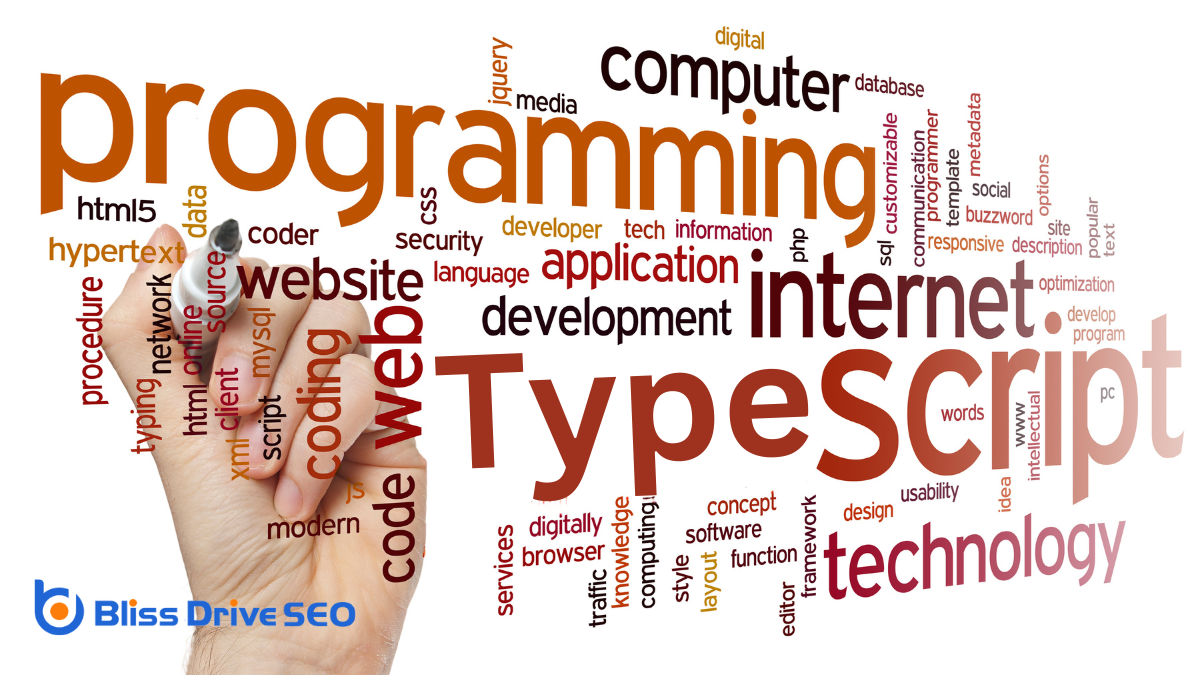Digital Marketing Services
Learn More About Us

When you're deciding on the best language for web development, it's important to evaluate both the project's needs and your team's expertise. JavaScript is indispensable for dynamic web applications, but Python's readability and frameworks like Django provide speed and simplicity. Ruby, with its elegant syntax and Ruby on Rails, offers a unique charm, while Java shines in enterprise settings. TypeScript brings static typing to JavaScript, enhancing code maintainability. Each language has its strengths and caters to different aspects of web development. So, how do you weigh these options to find the right fit for your next project?
JavaScript is the backbone of contemporary web development, offering unparalleled flexibility and power. When you engage in web development, you quickly realize how vital JavaScript is for creating dynamic and interactive web pages. It allows you to manipulate HTML and CSS, making your website come alive with responsive elements like animations, form validations, and real-time updates. JavaScript is what enables buttons to react when clicked and pages to load content dynamically without reloading.
Understanding JavaScript is essential because it's supported by all modern web browsers, ensuring your web applications work seamlessly across different platforms. With libraries and frameworks like React, Angular, and Vue.js, you can streamline your development process, making it easier to build complex applications. These tools help you organize your code and enhance productivity, which is a huge benefit when managing larger projects.
JavaScript isn't just limited to the front end; it extends to server-side development with Node.js. This means you can use the same language for both client-side and server-side scripts, enhancing efficiency and consistency.

When it comes to web development, PythonA high-level programming language widely used for data analysis and machine learning. has increasingly become a language of choice due to its readability and versatility. If you're new to coding, Python's syntax might feel like a refreshing change. Its clean and straightforward structure makes it easier for you to write code that's easy to understand and maintain. This simplicity doesn't mean it's only for beginners; many professionals appreciate Python for the same reasons.
Python offers powerful frameworks like Django and Flask that can help you build robust web applications efficiently. Django, in particular, provides a high-level framework that encourages rapid development and clean, pragmatic design. It takes care of much of the hassle in web development, letting you focus on writing your app without needing to reinvent the wheel.
Moreover, Python's extensive library ecosystem means you have access to a wide range of tools for everything from data analysisThe process of inspecting, cleaning, transforming, and modeling data to discover useful information.... to machine learningA subset of artificial intelligence where computers use data to learn and make decisions., which can enhance your web projects.
Plus, its active community guarantees you won't be alone when you hit a snag; there's plenty of support and resources available online. So, if you're aiming for a language that balances ease of use with powerful capabilities, Python deserves your consideration.
Ruby, often celebrated for its elegant syntax and developer-friendly environment, is another compelling choice for web development. If you're seeking a language that prioritizes simplicity and productivity, Ruby might be your perfect match. Its design philosophy emphasizes making programming enjoyable, which can be particularly appealing if you're just starting out or if you value clear, concise code.
One of Ruby's standout features is the Rails framework, commonly known as Ruby on Rails. This powerful tool can help you build robust web applications quickly and efficiently. Rails follows the convention over configuration principle, meaning it makes assumptions about what you want to do, which reduces the number of decisions you need to make. This can greatly speed up development time, allowing you to focus more on the functionality of your application rather than the setup.
Moreover, Ruby's community is incredibly supportive and vibrant. You'll find a wealth of resources, libraries, and tools to aid you in your development journey.
Whether you're building a simple blog or a complex e-commerce site, Ruby offers the flexibility and support to make the process smoother. Embrace Ruby, and you might just find web development more enjoyable.
Among the many languages available for web development, Java stands out for its versatility and performance. If you're considering using Java for your projects, you're in good company. Java is a robust, object-oriented language that provides a stable environment for building enterprise-level applications.
You might wonder why Java is favored, so let's explore some compelling reasons.
Java's advantages make it a strong contender for your web development needs.

TypeScript, a superset of JavaScript, offers powerful features that enhance the development of modern web applications. If you're already familiar with JavaScript, moving to TypeScript is relatively seamless. The key advantage lies in its static typing, which helps catch errors early in the development process. This means you spend less time debugging and more time building.
With TypeScript, you can define types for your variables and function parameters, making your code more predictable and easier to understand. It supports modern JavaScript features while providing tools for code scalability and maintenance. You get the best of both worlds—JavaScript's flexibility and TypeScript's structure.
TypeScript's popularity has surged because it integrates well with popular frameworks like Angular and React. It also offers excellent tool support, with IDEs like Visual Studio Code providing robust TypeScript features such as IntelliSense and real-time error checking.
Incorporating TypeScript into your projects can leadA potential customer referred by an affiliate who has shown interest in the product or service but h... to cleaner, more maintainable code, especially in larger applications. While it might take some initial effort to learn the type system, the long-term benefits are worth it.
Ultimately, TypeScript empowers you to write more reliable and efficient web applications.
When choosing a language for web development, consider your team's skills and project goals. JavaScript is essential for dynamic applications, while Python offers easy readability and quick development with frameworks like Django. Ruby shines with its elegant Ruby on Rails framework, and Java is ideal for enterprise solutions. If you want to enhance JavaScript with static typing, TypeScript is a great choice. Ultimately, pick the language that best fits your needs and expertise for a successful project.
